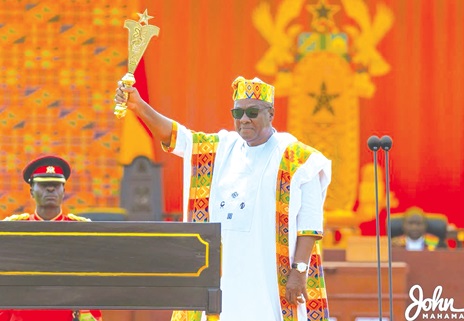About two weeks ago, a media house contacted me for an interview.
They were interested in discussing my book, 5Presidents, 8Elections, 30Years Later: How Ghanaians See Their Democracy.
Although two years have passed since the publication of this book, the contents remain relevant to any discussion about the state of democracy in Ghana.
Over one hour, we discussed a range of topics, including challenges facing the youth, confidence in institutions, the role of government in job creation, the private sector as the engine of growth and the cost of social intervention programmes.
At the end of the conversation, the host said to me, “I can see you are a democracy optimist.”
It was the first time I had been described as such and it forced me into reflection once the interview ended.
It also reminded me of a comment during my book launch in 2023, when the moderator asked, “How do you point out all these challenges with how the country is practising democracy, and still end up saying Ghanaians have made their peace with democracy?”
Democratic Cynicism
The comment about my optimism and the question about why I assert that Ghanaians have made their peace with democracy reflect a certain state of cynicism.
But can you blame the cynics who, in public conversations about the country’s politics and governance, raise doubts about its democracy?
Here are a few reasons why you cannot.
First, the polarised nature of our politics, and the regular tussle between our two dominant parties – the New Patriotic Party (NPP) and the National Democratic Congress (NDC) breeds among citizens a feeling that national interests play second fiddle to partisan interest. When national issues are debated along strictly partisan lines, where even on the basic facts, there is partisan disagreement, it forces citizens to ask, Who is the focus of our democracy?
Second, each election cycle comes with a promise of fighting corruption.
Yet, after each election, especially those that produce a turnover, citizens do not witness any transformational change in the fight against corruption.
While we make efforts at post-regime accountability, there is very little done around in-regime accountability.
Even on matters of post-regime accountability, the lack of demonstrable results of seeing people being truly held accountable gives citizens the impression that our democracy lacks the tools of proper accountability.
What is worse, reports from the Auditor General’s office reinforce this feeling.
Third, the growing influence of money and the lack of transparency surrounding political and campaign financing are concerning.
I have argued that the issue is not necessarily money in our democratic politics.
After all, political parties and candidates running for elected office need money to cover campaign expenditures.
The problem is when the sources of financing are unknown, disclosure requirements are not complied with, and citizens see what happens during party primaries, by-elections and general elections in terms of inducements, it only tells them one thing – democracy is for sale to the highest bidder.
Fourth is the perceived sudden change in the lifestyle of people, especially the youth, who enter politics and secure appointments to various public offices.
Sometimes, when some of these appointments are seen more as political rewards than as merit appointments, it only tells citizens that our democracy boils down to winning and sharing the spoils of “war” among party faithful.
These four, among many other factors, are surely going to breed democratic cynicism among citizens
Yet, I argue once again that Ghanaians have made their peace with democracy.
And I say this because on the core features and principles of democratic governments – a) use of elections to select leaders; b) term-limits; c) media freedom; d) parliamentary oversight; e) executive restraints and f) judicial independence, Ghanaians express positive sentiments about them as captured by the Afrobarometer survey.
Most important of all, even in Afrobarometer survey years (2014, 2022, and 2024) where satisfaction with democracy was very low, Ghanaians continued to say, “democracy is preferable to any other form of government”.
This is what guides the interviewer’s perception of me as a “democracy optimist”.
Yes, a democracy worth keeping
Ghana’s democracy is worth keeping.
But even in my democracy optimism, I do not offer this endorsement as a blank cheque because those experiencing “democratic cynicism” offer us something to really think about.
In fact, our democracy will not further mature and strengthen if the factors that drive democratic cynicism among citizens persist.
The consequences of our democracy failing will be disastrous.
We must work hard together to address the challenges our democracy faces.
These challenges are well captured by the Afrobarometer survey and regularly expressed by citizens in public conversations.
We have an excellent opportunity to do this through the ongoing constitutional review process.
This is our one unique opportunity to take meaningful steps to “cure” the ills of our democracy.
The writer is the Project Director, Democracy Project.

